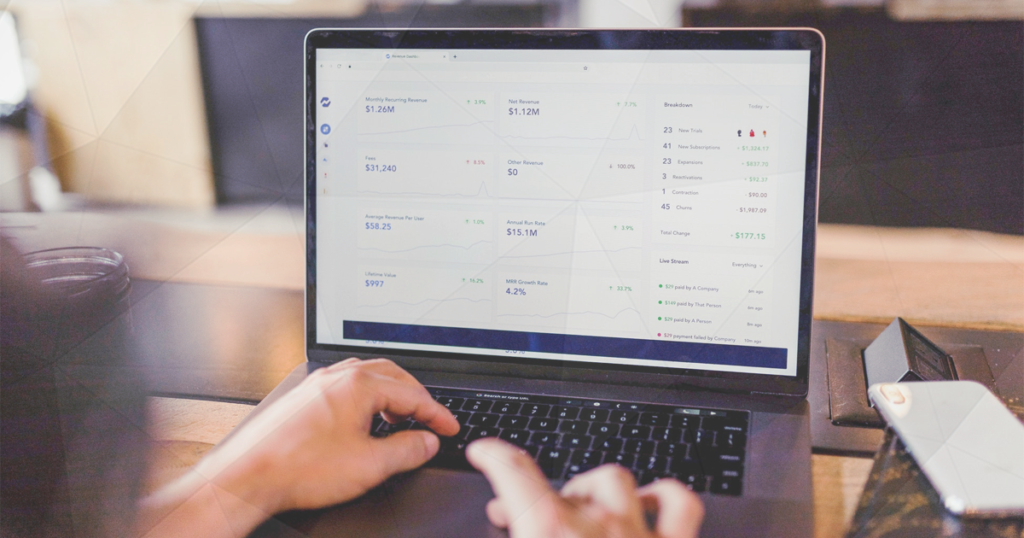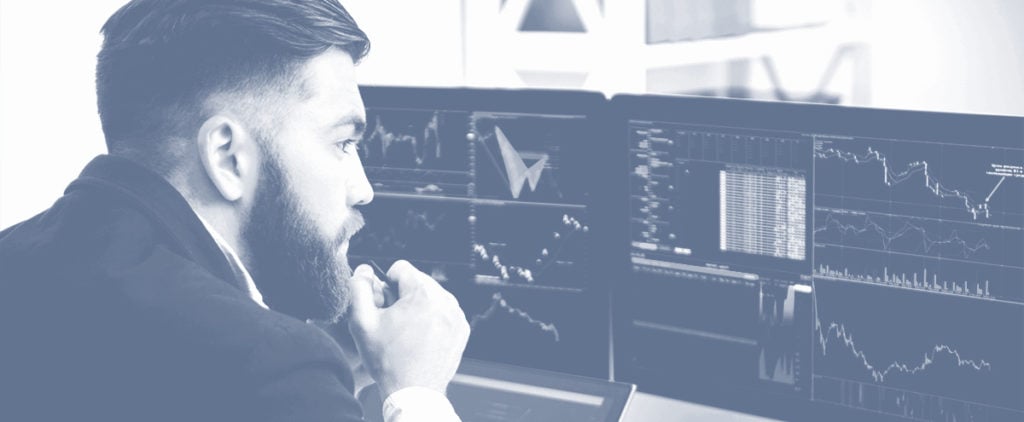Checklist of Questions to Ask a Forex Trading Coach

Trading on the Forex market is now accessible to everyone.
Yet only a few traders manage to cross the finish line and become consistently profitable in the long run.
Having a Forex trading coach to assist you in your trading journey can make a tangible difference and significantly shorten your learning curve.
To take full advantage of your coach’s experience, we’ve prepared a list of questions which you can use to ask your coach to get the most out of your relationship.
#1 How long have you been trading Forex?
Obviously, the first question you should ask your Forex trading coach is for how long they’ve been trading. You want a tutor who is experienced in what they’re teaching you.
Learning the skill of Forex trading requires a lot of discipline, sacrifice, and patience, and having an inexperienced coach will only prolong your learning curve. Coaches who have many years of trading experience have encountered a large number of market events and have learned how to deal with them.
While experience is immensely important, keep in mind that more experienced traders may also charge a higher rate.
- Learn more with our head tutor Phillip Konchar: Trading for Beginners Course
#2 What strategy do you use to trade the market?
While most instructors won’t reveal all of their trading secrets, they should provide the main points of their trading strategy.
How do they analyse the market, determine the entry and exit points and what’s their trigger to enter into a trade? A good Forex trading coach should be able to answer these basic questions without hesitation.
The strategy used by your coach can also reveal a lot about their trading style. If they use a lot of fundamentals, he may have a longer-term trading approach based on the daily or weekly chart. On the other hand, coaches who rely primarily on technical analysis can be both longer-term and shorter-term traders. It all depends on their trading edge.
#3 What trading style fits my personality?
For a coach to successfully answer this question, he or she first needs to get to know you. Whether you’re holding trading sessions online (e.g. over Skype) or not, a good coach will likely get a feeling about your personality as soon as you start working together.
As a rule of thumb, if you’re patient and disciplined then swing trading or position trading may be a good choice for you. However, if you like fast-paced action and can’t wait for days for a trade to open, then scalping or day trading is perhaps a better choice for you.
Read:
#4 How should I analyse the market?
A good trading coach should be able to explain to you the advantages and drawbacks of popular market analysing tools, such as technical, fundamental and sentiment analysis. While many successful traders base their trading decisions on a combination of two or more analytical disciplines, such as technicals and fundamentals, there are also many traders who’ve mastered only one approach and trade profitably with it.
If your trading style requires longer-term trading, then combining fundamental analysis with technicals might be a wise decision. Currencies follow the development of macro-fundamentals in the long run, and market-moving reports can easily break a well-defined support or resistance zone.
Traders who combine fundamentals in their trading are able to anticipate large exchange rate moves and increase the success rate.
#5 At what time should I place my trades?
The Forex market is open around the clock, Monday through Friday. Traders can place their trades at any time they want since there is always an open market somewhere in the world. When New York sleeps, Tokyo and Sydney are awake, and vice-versa.
However, despite the ability to place trades around the clock, certain times offer better profit opportunities than others. This is especially true for day traders and scalpers who open a large number of trades during the week or day and who can easily get affected by wider spreads or slippage.
Again, a good trading coach should assess your trading style before giving you a definitive answer to this question. Day traders and scalpers should focus on the most liquid time of a trading day, which is the overlap of the New York and London session. Swing and position traders, on the other hand, are not affected by wider spreads since they hold their trades for a longer period of time and have higher profit targets.
#6 How many positions do you open per day/week?
Beginner traders are often interested in how much they should trade.
Should you open one trade per day or one day per week?
How about 10 trades per day – the average number of trades that scalpers take?
The way you analyse the market directly affects the number of trades you can take. While there is no single answer to this question, bear in mind that most professional traders have a longer-term approach to trading and have the patience to sometimes wait for weeks before a trading opportunity arises.
Read:
#7 How much should I risk per trade?
Risk management is perhaps the most important part of trading success. Nobody knows what the market will do in the next day, the next hour or even the next minute. When we place a trade, it’s all about probability – we believe that our trade has a higher chance to win than to lose and pull the trigger to open the position.
The risk we take in the market is the only thing that we’ve full control over. Successful traders are well aware of this and risk only a small percentage of their total trading account on any single trade. The golden rule is not to risk more than 2% of your trading account on a trade – and as your account rises, consider even to reduce your risk-per-trade to 1%.
A good Forex trading coach should be able to explain to you the main goals of a Forex trader:
- Protect your capital
- Cut your losses
- Try to make a profit
#8 What reward-to-risk ratio should I aim for?
Besides defining your risk per trade, you should also pay attention to the reward-to-risk ratio of each trade you take. The reward-to-risk ratio equals the potential profit of your trade relative to its potential loss.
#9 How to handle the stress of a losing trade?
Let’s face it – there will always be losing trades here and there. Even professional traders need to swallow a loss from time to time. However, they know that they’ll be profitable since they use strict risk management rules and risk only a small percentage of their trading account per trade.
If we can’t avoid losses, how should we deal with them?
Simply consider them as a part of the game.
Novak Djokovic or Roger Federer may lose a set, but will likely win the match in the end. The same applies to professional trading – just embrace a loss and move on.
Beginners tend to follow each tick of a position that goes against them and worry about the trade. Professional traders believe in their analysis and give the trade room to perform. If the trade takes much time to become profitable, they cut the loss early and look for other opportunities.
Read:
#10 How many trades should I have simultaneously open?
The next question you should ask your trading coach is how many trades should you have open at a time.
Your coach will answer you based on your trading style and strategy. Just bear in mind that the average number of trades held simultaneously open by beginner trades is usually up to three. Professional traders, on the other hand, can hold a dozen of open trades to lower their market risk and take advantage of currency and intermarket correlations.
Naturally, the actual number depends on how many trading opportunities that exist in the market. But, it’s important to know that professionals won’t hesitate to pull the trigger once they identify an opportunity.
#11 Should I combine Forex with other markets?
There are many financial markets in the world as our free course covers, check it out. You can trade currencies, equities, bonds, commodities, or even derivative contracts based on each of these asset classes.
While we focus mostly on Forex, the truth is that all financial markets are interrelated with each other. Rising equities can increase the demand for the domestic currency in order to invest in stocks, for example, which can lead to an appreciation of that currency. Similarly, falling equities can decrease risk appetite among investors and support the price of gold, which is traditionally considered as a safe haven.
Ask your Forex trading coach whether they trade other markets and how to take advantage of the intermarket relationship that exists among different markets.
#12 Should I close my trades ahead of important news?
News and market reports can have a large impact on currencies.
Beginners often try to predict the actual number of a market report and get badly hurt after the number gets released. Once they realise that forecasting the actual number of a report is almost impossible, they begin to close their positions ahead of important market events, such as the non-farm payrolls or interest rate decisions.
Fundamentals can be broadly grouped into micro-fundamentals and macro-fundamentals. News, headlines and reports such as the aforementioned ones are micro-fundamentals that have a relatively short impact on the markets. The trend of a currency pair isn’t changed by the report itself, but rather by the collective view of a large number of market participants who may start to question the current trend.
For instance: If a country reports lower-then-expected economic growth for two consecutive quarters, investors may question the ability of the central bank to hike interest rates at the next meeting.
Trends change gradually, and if you have a longer-term approach to trading, you don’t have to close your trades ahead of scheduled news reports. However, if you’re a scalper or day trader, the increased volatility after the report can easily lead to relatively high losses.
#13 Should I trade exotic currencies?
As most of you already know, there are eight major currencies in the Forex market.
If your trading style requires a longer-term approach to market analysis, it might be difficult to find profitable trading opportunities at times. So why not add exotic currencies to our analysis?
Exotic currencies are not as much traded as majors. As a result, their liquidity is low and volatility quite high. It’s not unusual for less-traded currencies to move hundreds and even thousands of pips in a matter of hours. In addition, you need to pay attention to political and economic risks of those currencies, which may change from day to day.
Ask your Forex trading coach whether trading exotic currencies fit into your trading style and how to manage the risks associated with trading them.
#14 Are certain pairs better to trade than others?
Not all Forex pairs behave the same during certain market events. Even among majors, there is a large difference in liquidity, volatility and active market hours among them.
As a beginner, it might be a wise decision to focus on the most-traded currency pairs such as EUR/USD, USD/JPY and GBP/USD. Trading these currencies will likely reduce trading costs and slippage, and you’ll be able to avoid chaotic movements that may arise as a result of low liquidity in other pairs.
#15 How to identify a trending market?
Different traders may have different approaches to identify a trending market. Ask your Forex trading coach what his approach is. Usually, a trending market is defined as a market that is forming consecutive higher highs and higher lows (an uptrend), or consecutive lower lows and lower highs (a downtrend.)
In addition, some technical indicators can also be used to identify trends and their strength, such as the Average Directional Movement Index. Your trading coach will show you what’s the best trend-analyzing tool to use based on your trading style.
#16 How to identify a ranging market?
Besides trending, markets can also stay in a range for a long period of time. Ranges are defined as an absence of trends where the price doesn’t manage to form higher highs or lower lows. Also, bear in mind that different trading rules apply when trading ranging markets. Ask your trading coach whether your trading strategy allows taking trades during ranging markets.
#17 How much profit can I make trading Forex?
This is a classic question among beginners. It might also be an interesting question to ask a Forex trading coach. As a rule of thumb, if your coach promises to teach you how to double your account every week, you’ll be better off looking for other coaches out there.
- Take our free course: Technical Analysis Explained
- Take our free course: Trends, Support & Resistance
- Take our free course: Japanese Candlesticks Decoded
- Take our free course: Reversal Price Patterns
- Take our free course: Continuation Price Patterns
- Take our premium course: Trading for Beginners





